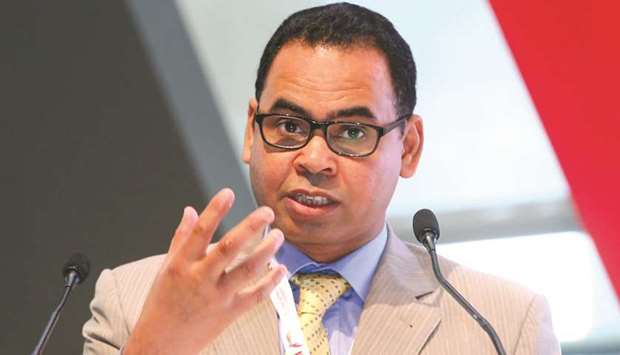Qatar is progressing well in entrepreneurship development compared to the other GCC countries, providing better opportunities for both aspiring and full-time entrepreneurs, an assistant professor at Qatar University’s (QU) College of Business and Economics has said.
Speaking to Gulf Times on the sidelines of the International Products Exhibition and Conference (IPEC) 2018 which concluded yesterday, Centre for Entrepreneurship director Dr Mahmoud M Abdellatif Khalil explained that Qatar created not only numerous opportunities but also a suitable environment for entrepreneurs.
“Qatar is performing better in this field than other neighbouring countries. If you look at Global Entrepreneurship Index 2018, the country is ranked among innovation driven countries,” stressed Dr Khalil, who was one of the three QU speakers in yesterday’s session at the conference.
A recent study by Qatar Development Bank showed that Qatar scored 55 and ranked 22nd in the index, besting the UAE (score: 53, rank: 26th), Oman (47, 33rd), Bahrain (45, 35th), Kuwait (43, 39th), and Saudi Arabia (40, 45th), and is capable of offering a “strong entrepreneurship ecosystem”.
Dr Khalil said the “current geopolitical situation” also boosted the country’s entrepreneurship drive, creating more startups and an array of initiatives in various sectors, especially in the area of agriculture.
The director also highlighted self-sufficiency efforts of Qatar in the face of a blockade (which started in June 2017), inspiring entrepreneurs to be more competitive through innovative ideas.
The ‘unjust siege’ also encouraged and motivated aspiring young entrepreneurs to pursue their career with the aim of helping to contribute to the country’s economy, according to
Dr Khalil.
“Even the trend of entrepreneurship went up since the blockade and a lot of new ideas popped up to accommodate our current situation,” he pointed out. “There are a lot of opportunities but we need to educate them (aspiring entrepreneurs) and disseminate information about its availability so people will be aware of.”
Dr Khalil said Qatar is also progressing extremely well in diversifying its economy, which is expected to benefit the business sector.
“If you look at the figures of Qatar’s economic outlook, you will find the share of non hydrocarbon sector, in comparison to hydrocarbon, it starts to increase, which reflects that the government’s effort is successful in terms of diversification,” he stressed.
According to the QNB economic commentary, the country’s economy grew by 1.6% in 2017 despite the blockade by some of its neighbours and described its non-hydrocarbon GDP growth as solid with 3.8%.
In the first quarter of 2018, Qatar’s total non-hydrocarbon GDP growth was a robust 4.9% year-on-year (y-o-y), starting the year on a strong footing. For 2019, QNB forecasts a 5.3% non-hydrocarbon GDP growth.

Dr Mahmoud M Abdellatif Khalil speaking at IPEC 2018 yesterday.



